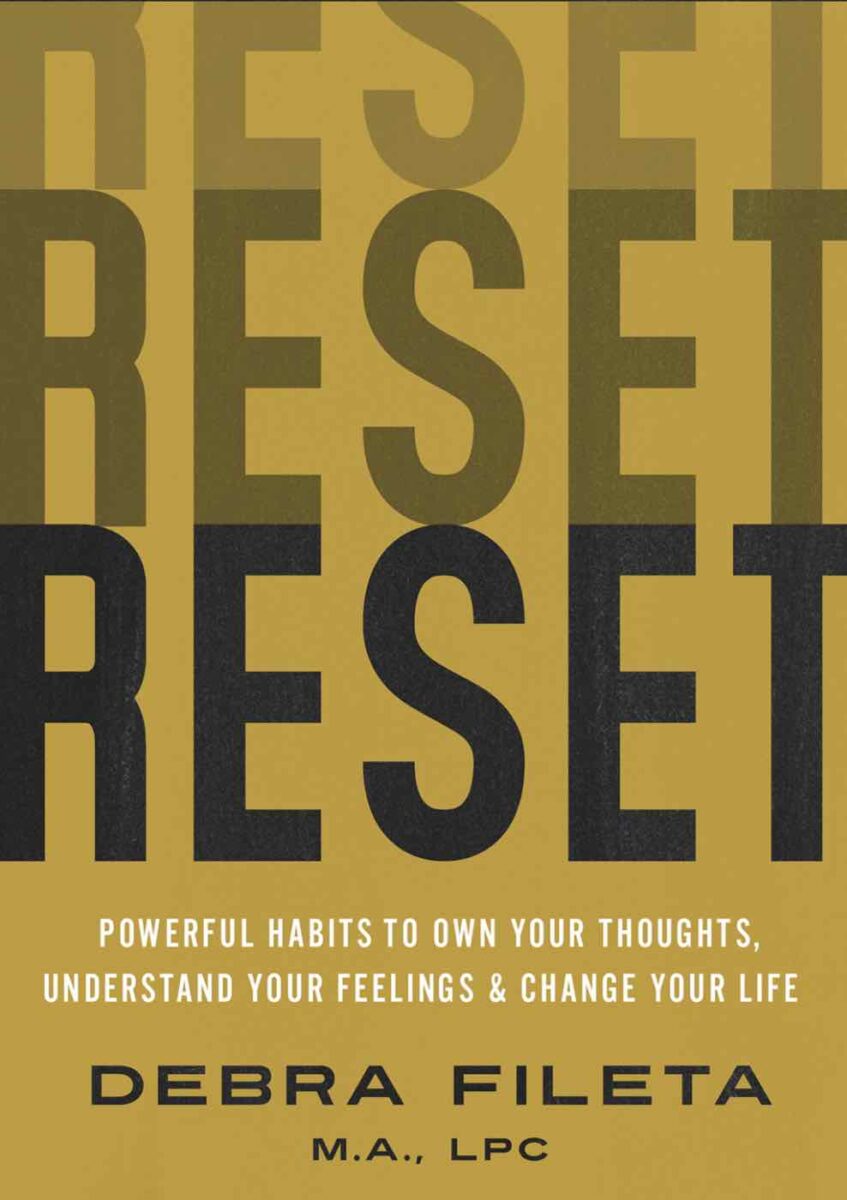Taking a Journey Back to Move Forward: Andrea Bocelli & Debra Fileta
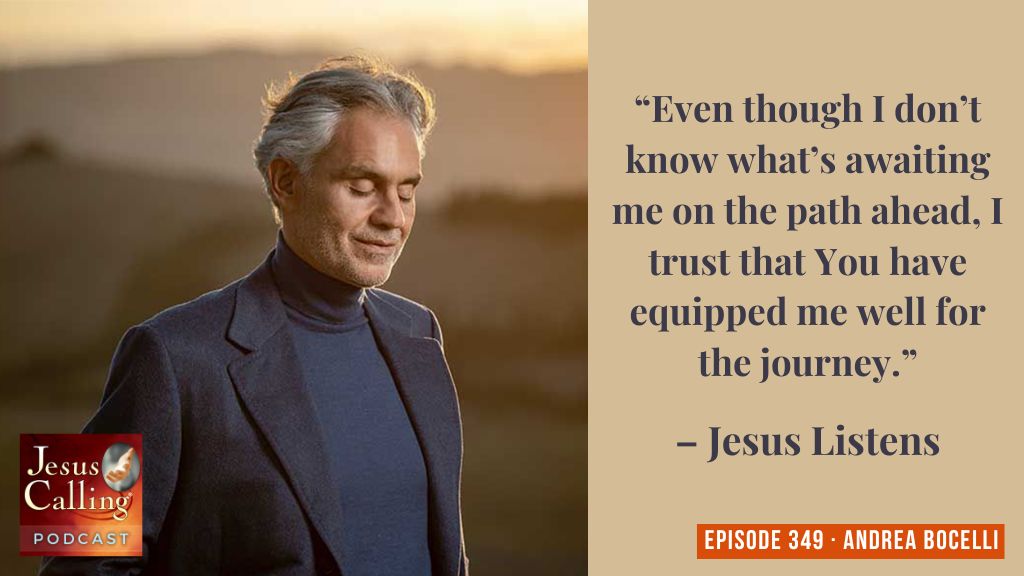
Taking a Journey Back to Move Forward: Andrea Bocelli & Debra Fileta – Episode #349
Narrator: Welcome to the Jesus Calling Podcast. As human beings, we’re all on an individual journey, a walk that is all our own. Perhaps you grew up in a family of faith that laid the groundwork for the beliefs you have today, or perhaps you discovered your faith later and can mark the moments when God made Himself present on your journey. No matter how we get to our faith, or where we’re headed, the faith that lives inside us will guide us on a beautiful journey that will take us to the place we’re meant to be.
Andrea Bocelli, the world’s most beloved tenor singer, joins us this week to talk about his faith journey, along with his wife Veronica, who closes the interview with a prayer from Jesus Listens. Speaking in his native Italian, which has been translated to English for this podcast, Andrea recounts how his love for his family and his faith has kept him centered during all the years his career had him jet-setting across the globe to perform on the world’s most iconic stages. His latest music special The Journey, finds Andrea revisiting his roots along with the people and forces that shaped him into who he is today.

Andrea Bocelli: Hello everyone, I’m Andrea Bocelli. I guess that most of you already know. I’m here just to tell you about the reason why I’m a Christian, I believe I’m actually a Christian. I think that all of us—I’m talking about Christian people—came across the glad tidings when we were kids, didn’t we? We hear about it at school, often at home, then at church when we go to the mass. This happens when we’re kids, and we don’t have the critical ability to reflect on what we’ve been told. Then we have a whole lifetime to try to understand how much of the story we’ve been told is a true story, and I started to reflect on this quite early. I was young.
As a kid, I went through a difficult time when I couldn’t find actual answers to my questions, and I defined myself as an agnostic. I liked this pseudo-cultured term, agnostic means “he who doesn’t know because he doesn’t have the means to know.” When this definition wasn’t enough for me anymore, I looked for the reasons to believe or not believe in this story. I realized that there can’t be a clock without a clockmaker. If someone told us that a well-constructed pendulum clock appeared out of nowhere all of a sudden, we’d all laugh, only gullible people would believe it. Nobody knows who made the clocks in 1800 and so on, but we know for sure that someone must have made them. So how can we not believe that someone created us and life on earth, which is something way more complex than a well-made pendulum clock? And this convinced me right away that between the idea of God and fate, I was going towards the first one, and from that moment everything I had done so far—going to the mass, all these things—wasn’t something abstract anymore, instead, it was extremely serious, tangible, and important.
“I realized that there can’t be a clock without a clockmaker…this convinced me right away that between the idea of God and fate, I was going towards the first one, and from that moment everything I had done so far—going to the mass, all these things—wasn’t something abstract anymore, instead it was extremely serious, tangible, and important.” – Andrea Bocelli

There’s a Chinese saying that says that China is the center of the world, right? I think that Chinese people are right, because everywhere we’re born, anywhere we’re born, we’ll consider that place as the center of the world. Being born in Italy, it’s even easier to consider it this way. As you know, Italy is the center of Christianity, but there are also extraordinary works of art and beautiful places. People come from all over the world to come to these places and find peace of mind, don’t they? Places near the sea, in the mountains, in the countryside lakes. A friend of mine always says: “We’re lucky to be Italian, we’re luckier to be born in Tuscany, and we’re even luckier to be born in Versilia,” and he’s right.
Narrator: Andrea discusses his new musical movie, The Journey, and how he was inspired to create it.
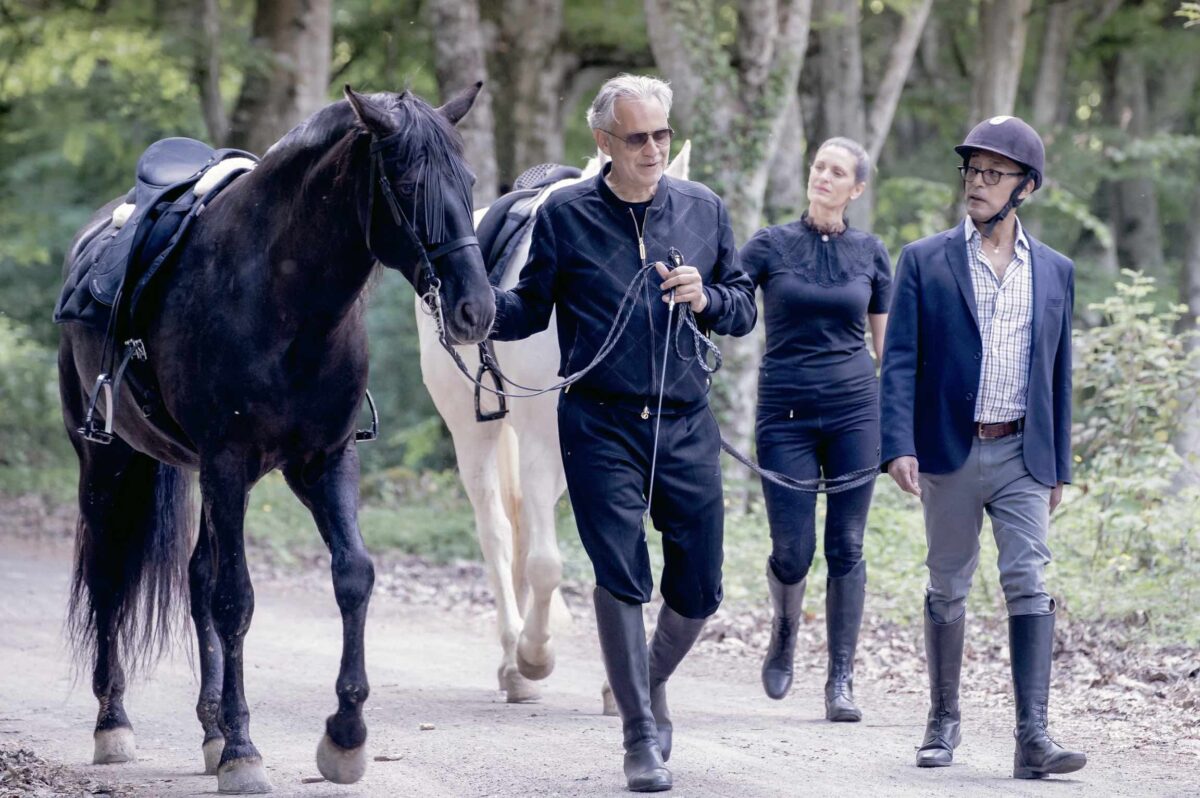
Andrea: I don’t really know what pushed me, probably many things all at once: from the most banal things such as the passion for horses I’ve had since I was a kid, to the idea of convincing Veronica to ride a horse again after a long time and to come with me, and most of all the idea of taking a trip to lead us back to faith constantly, deeply, seriously. We met people with whom we talked about faith in a profound and significant way, and I think it enriched us all.
The love I have for my family has never been damaged by my success and career, never. I’ve never lost any second to get back home, to be with my children, and so on. Of course, my career might put at risk my faith because there are moments when it’s easy to feel high and important, aren’t there? I must say that faith has always been very important to me to keep myself down to earth, to remember that everything I’ve done wasn’t my merit, but a gift from God. I’ve always thought so.
“I must say that faith has always been very important to me to keep myself down to earth, to remember that everything I’ve done wasn’t my merit, but a gift from God.” – Andrea Bocelli

There are two ways of praying: one, which fits me more, is praying to heaven. It’s an intimate and interior conversation, and I must say that I have it quite often. Then there’s the traditional prayer that you recite and you can have it in the way you consider more proper: on your knees, inside, in your bedroom, and it’s a very important moment that—and this is a public confession—I do less than I should.
Narrator: To close out his time with us, Andrea’s wife, Veronica, reads a passage from Jesus Listens.
Veronica: July the 8th:
My loving Lord,
You are good and Your Love endures forever! The best response to this promise is giving thanks to You and praising Your Name. Please help me to do this more consistently.
Lord, I’m so grateful for Your goodness!
Giving You thanks and praising Your Name are ways I find strength for my journey. Thanksgiving and worship lift my perspective from my worries and woes to the glorious Treasure I have in You, Jesus. Thankfulness puts me in proper alignment with You—my Creator and Savior. Worship deepens and enriches my intimacy with You. I rejoice that the more I praise You, the closer to You I grow. As I spend time worshiping You, I delight in remembering that Your steadfast Love endures forever!
In Your faithful Name, Jesus,
Amen
Narrator: Be sure to watch Andrea’s new music special, The Journey, coming to movie theaters on April 2nd.
Stay tuned to Debra Fileta’s story after a brief message.
Jesus Calling for Easter
The Easter season is filled with joy and hope. Now there’s a new way to focus on the holiday with Jesus Calling for Easter! With 50 Jesus Calling devotions selected just for the Lent and Easter season, Jesus Calling for Easter includes scripture verses alongside breathtaking imagery and exquisite design. Jesus Calling for Easter makes a stunning gift for those who love Jesus Calling and would like a new way to observe the Easter season. To learn more about this beautiful edition of Jesus Calling, please visit jesuscalling.com/books.
Our next guest is licensed counselor and national speaker Debra Fileta, who specializes in relationships and mental and emotional health. In her new book, Reset, Debra walks readers through a journey to transform their old habits and bring about lasting change in their lives.
Debra Fileta: My name is Debra Fileta. I’m a licensed professional counselor and author. And the heart behind everything I do is to show people that healthy people make healthy relationships.
Approach Change from the Inside
We’re often told what we should and shouldn’t do, what we should stay away from, what we should stop doing in our life. And while all those things are really important, the problem is when we approach change from the outside in, it doesn’t lead to lasting change.
“The problem is when we approach change from the outside in, it doesn’t lead to lasting change.“ – Debra Fileta
I think about a car that I had in college. It was like a lemon. This car would constantly break down on me, and one morning when I was on my way to my final exams, I was getting in the car and I put my key in the door and the entire lock cylinder came out of the car door. And then the windows rolled down and the alarms started blaring and I had to drive to my final exams as a college student in the middle of winter with this loud alarm blaring and my windows rolled down because of my lemon of a car. But what’s interesting is that I could have approached that problem from the outside in. I could have duct taped the windows, I could have muffled the alarm. But that’s not getting to the root of the problem. It’s not getting to the root of change.
And I think oftentimes we do the same thing in our own life. We want to change, so we tweak external things, but it’s almost like putting on a Band-Aid. It’s a superficial fix unless we can really get to the roots. And as a licensed counselor, I have seen with my own eyes, I’ve seen it in my life, and I’ve seen it in the life of my clients that true change means we have to get to the bottom of why we do what we do. If we really want to heal, we can’t just focus on the external. And that starts with what we believe about ourselves and our thoughts because thoughts lead to feelings, which then lead to behavior. And that’s how we get long-lasting behavior change.
Our brains and our bodies like to take the path of least resistance. We like to do things the easiest way, the way that it’s always been done. And oftentimes that’s the unhealthy way because that’s what’s been modeled to us. That’s why we found ourselves repeating the negative things from the past, whether it’s negative communication skills or not, dealing with our emotions in a healthy way. And that’s why it’s important for us to go on a journey of looking at our life in an objective way.
Christianity Doesn’t Guarantee Perfect Mental Health
Just because you’re a Christian doesn’t mean you’re healthy. Oftentimes, we think that when we come to Jesus, our emotional and mental health is just going to be what it needs to be. But we have to take a journey of healing with Jesus by our side, even with our mental and emotional health. And I have been on that journey myself.
“Just because you’re a Christian doesn’t mean you’re healthy. We have to take a journey of healing with Jesus by our side.” – Debra Fileta
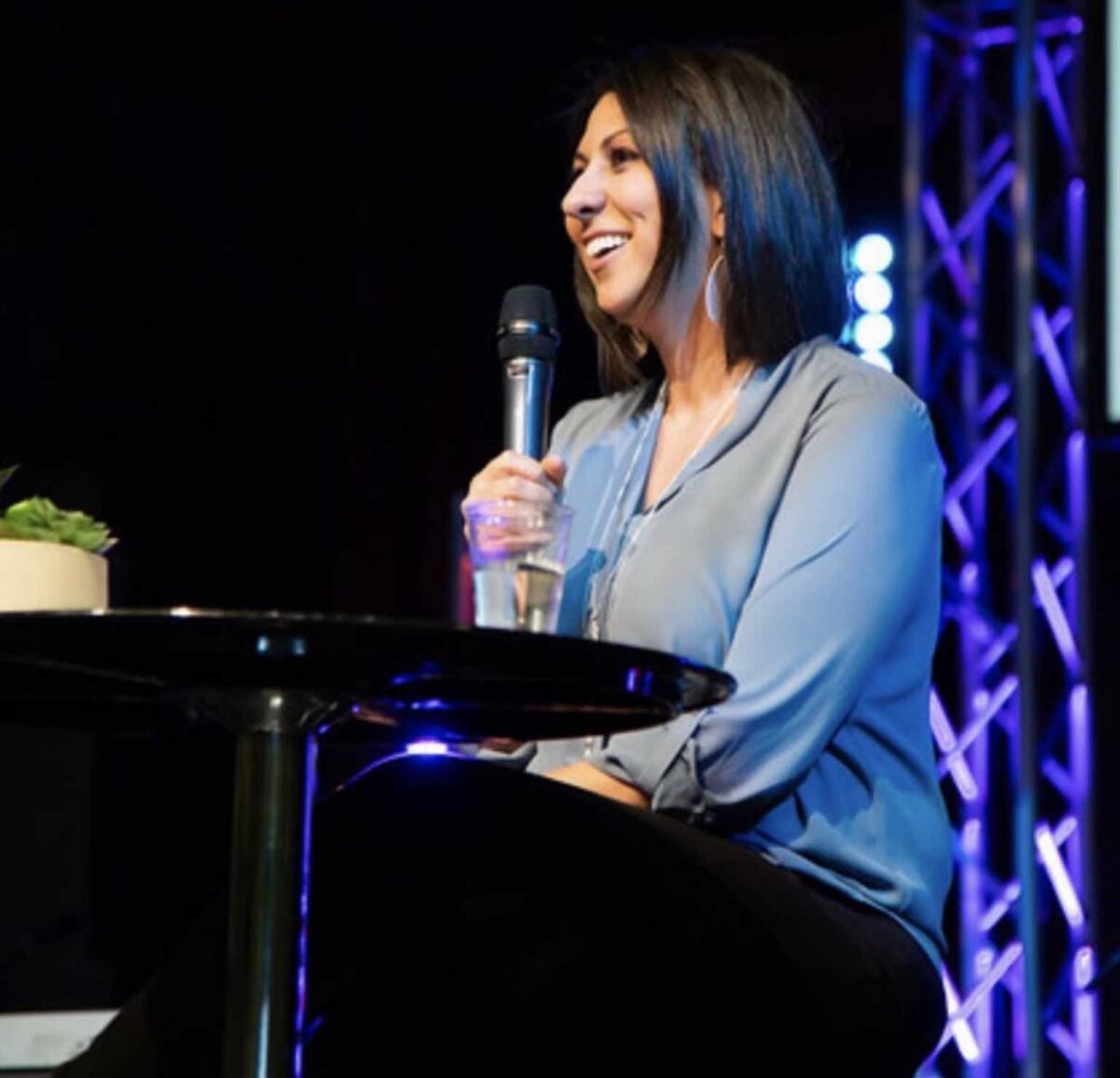
I went through a season where some past trauma was coming up. I almost lost my life, and had to have an emergency surgery many years ago, and years later, that trauma began creeping up to the surface of my life in the form of panic attacks. My body was remembering some of those difficult things I went through that hadn’t been processed, and was starting to react out of that trauma.
And so I had to go on a journey of really getting to the roots of where these feelings were coming from, because feelings are a signal. They were signifying something underneath the surface that needed to be healed. And I had to get to the bottom of some of my thoughts, some of those fears that I was carrying: fear of death, fear of being out of control, fear of something bad happening. And I had to face some of that trauma and actually go back and process it and see it through the lens of God’s truth. And God’s truth reminded me that there is no trauma that is more powerful than the power of Jesus at work in me.
“There is no trauma that is more powerful than the power of Jesus at work in me.” – Debra Fileta
God’s truth reminded me that there was nothing to fear. God’s truth reminded me that my days are numbered, that Jesus has my days numbered and that my life doesn’t slip away without His permission. And all of these truths had to start replacing my trauma in order for my physical body to stop reacting to some of those things from the past. And so I have been on a journey myself, and I’ve seen the importance of aligning my emotional and mental health with God’s truth.
It’s not just a spiritual journey we’re on. We’re on a journey of emotional, physical, mental, and spiritual health. When Jesus says, “Love the Lord your God with all your heart, soul, mind, and strength,” [Mark 12:30] I truly believe that that represents our emotional health, our spiritual health, our mental health, and our physical health, learning to align every part of who we are to everything that God has called us to be.
Understanding Why We Do What We Do
When we look at Scripture, Paul even says, “I keep doing what I don’t want to do. Why do I do what I don’t want to do?” [Romans 7:15] And he starts that phrase by saying, “I do not understand. Why do I do what I don’t want to do?” And therein lies the key that any counselor will tell you is understanding. When we understand why we do what we do and the motivation behind it, we can begin to heal.
And scripture backs this up. I mean, the Bible is constantly encouraging us to take our thoughts captive, to renew our mind, because behavior change starts with our thoughts. What you think determines how you feel, which determines what you do.
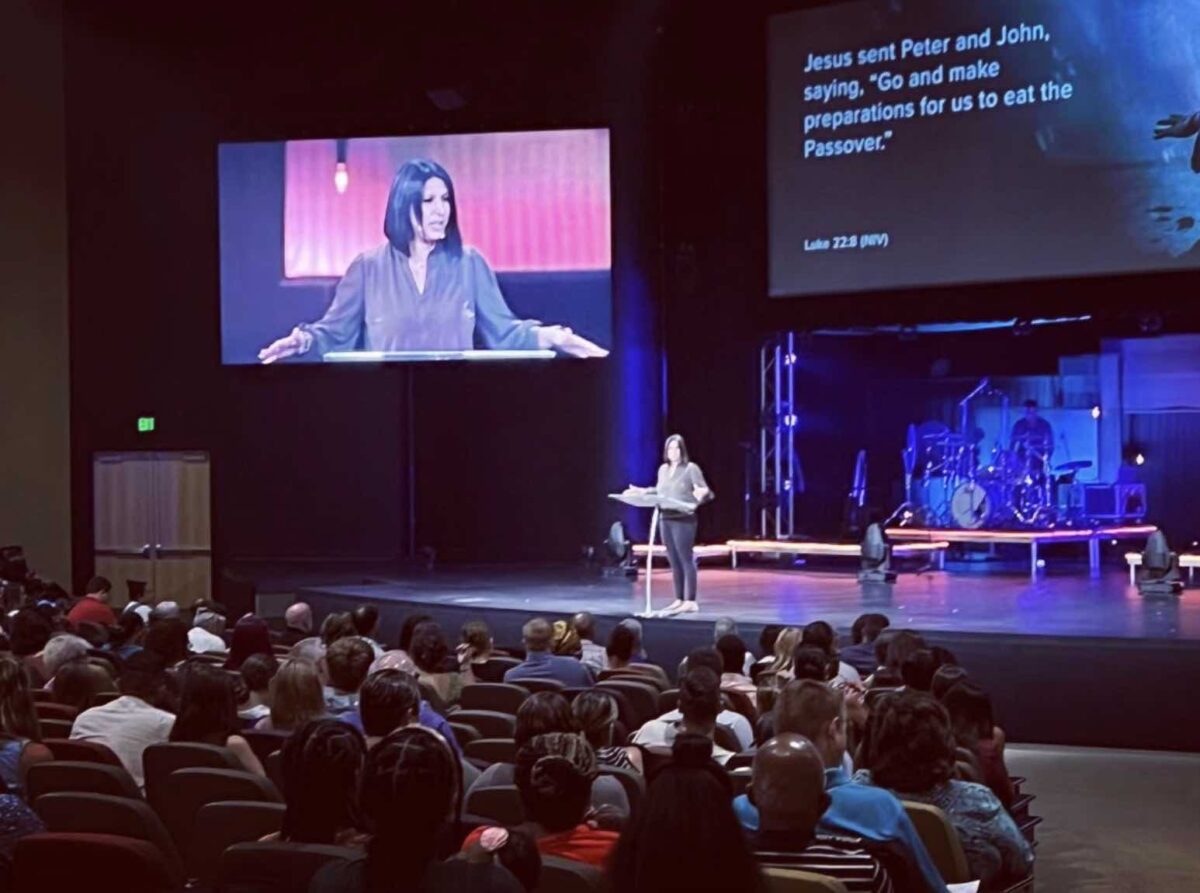
For example, if I’m thinking thoughts such as, I’m not good enough, I just can’t do this, I’m not good enough for this, I’m going to start feeling insecure. I mean, I start feeling anxious. I’m going to start feeling inadequate. And as I’m feeling insecure and anxious and inadequate, I’m going to start behaving out of those feelings.
So maybe I’ll start avoiding people. Or maybe I’ll cancel something that I was supposed to do because I’m feeling anxious. I’m not feeling capable. Your thoughts ultimately affect how you feel, which then affects how you behave and what you choose to do and how you act. And so this is why it’s so important for us not to just look at the external behavior of what I’m doing, but to really begin unpacking some of those layers. What’s the feeling underneath this? And then what thought or belief is that rooted in?
“Your thoughts ultimately affect how you feel, which then affect how you behave and what you choose to do and how you act.” – Debra Fileta
And oftentimes, we find that some of the things we do are actually rooted in our trauma. They’re not rooted in God’s truth. Maybe we feel like we’re not good enough. Maybe we have those thoughts roaming around in our minds on the back burner. You know, sometimes we think thoughts so automatically that we don’t even realize we’re thinking them. So what if we were able to start pinpointing some of those negative thoughts and really challenge ourselves? Is this thought rooted in trauma from my past, or is it actually rooted in God’s truth? And many times the Lord needs to take us on a journey of going backward in order to heal some of those hurts and insecurities and fears from the past, in order to replace them with God’s truth so that we can begin getting unstuck in our present.
“Many times, the Lord needs to take us on a journey of going backward in order to heal some of those hurts and insecurities and fears from the past, in order to replace them with God’s truth so that we can begin getting unstuck in our present.” – Debra Fileta
I think oftentimes, we believe the lies that how I’m doing is a reflection of my faith, and that’s not accurate. In fact, oftentimes the struggle is a reflection of our strength. Oftentimes, the struggle is the catalyst for our faith. I look back at some of the darkest times that I’ve walked through, and those were the catalyst to build my faith and draw me closer to Jesus because I needed Him every minute of every day.
And when I’m working with clients, one thing I remind them is that when God reveals a struggle, when God reveals something in your life that’s a weakness or a sin, and He’s bringing it to the surface of your life, it’s not to shame you. It’s to invite you into a deeper level of healing. He’s bringing those things up because He’s trusting you to say, “Okay, Lord, I’m ready to become healthy and whole. I’m ready to do the work of sanctification. I’m ready to become more like you.” So in a way, we can see it as an invitation into deeper levels of healing.
“When God reveals a struggle, when God reveals something in your life that’s a weakness or a sin, and He’s bringing it to the surface of your life, it’s not to shame you. It’s to invite you into a deeper level of healing.” – Debra Fileta
Ask God What Needs to Be Healed
I think we live in such a busy world, it’s just go, go, go, go, go, go, go, that oftentimes we don’t even take the time to stop and listen, to stop and take inventory, to stop and ask the Holy Spirit for direction of what needs to heal. And I really believe that pausing is one of the very first steps for us to become healthy and whole and to start doing things differently.
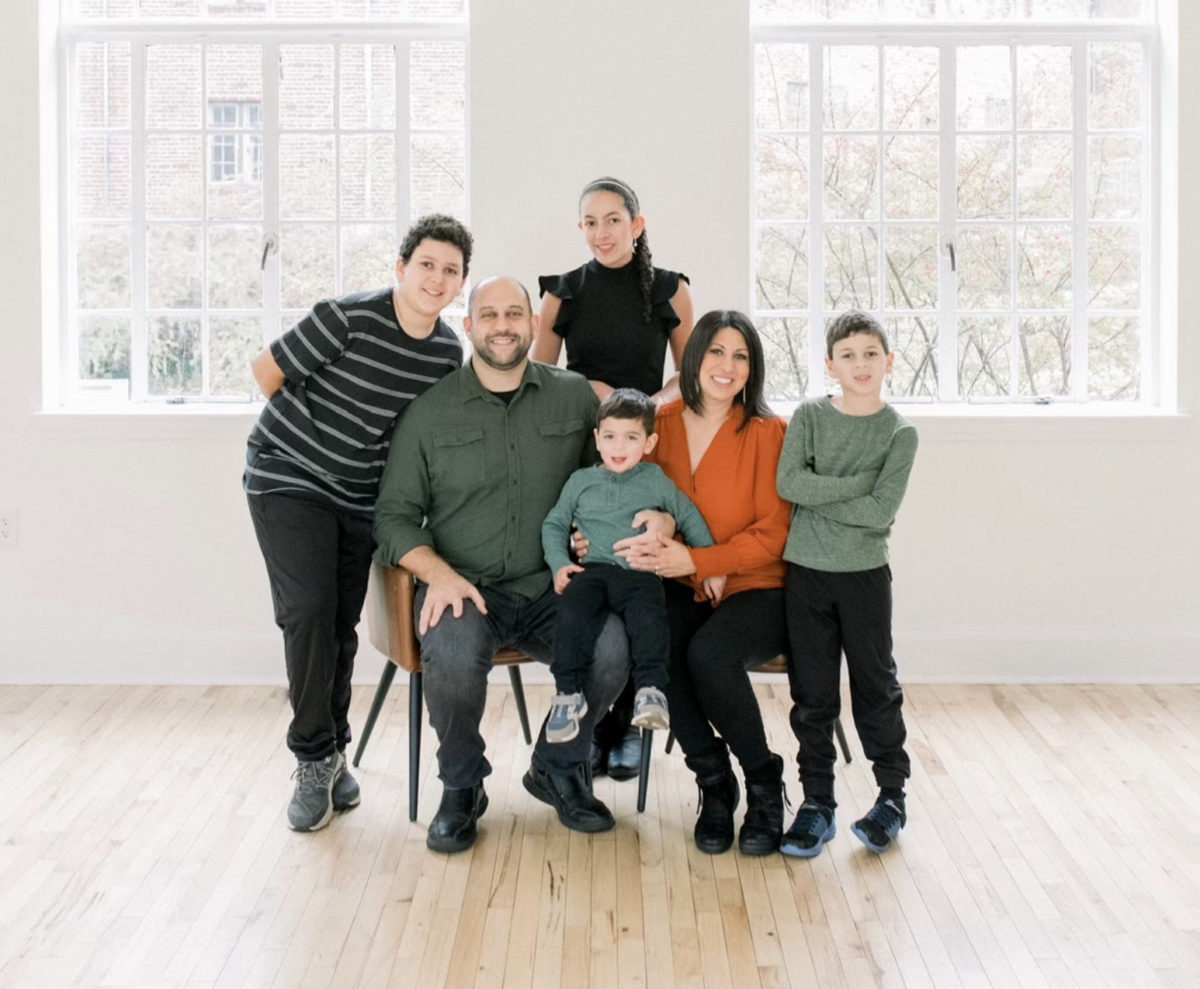
It really is a journey, isn’t it? You know, I’m almost forty, and I’m just looking back at the forty years that I’ve lived and all of the different patterns and habits and ways that I handle emotions, experiences, traumas. All the different things that have impacted who I am today have taken forty years of time to establish. And to think that they’re just going to change overnight or in a week or in a month is really unrealistic. I think sometimes we put so much pressure on ourselves and it’s so unrealistic and we carry that burden until we break and we just can’t do it anymore. It’s going to take you quite a while to undo some of those things and to begin to do it differently. And that is okay. And sometimes people say, “Debra, it’s hard to heal. I need motivation. It’s hard to heal.” It is hard to heal, but it’s also hard to stay the same. It’s also hard to live with struggle and sin and addiction and bondage. And all of those things seep into your life, your marriage, your family, your ministry. That’s also really hard. And if you ask me, that is a much harder way to live underneath the burden of sin and struggle rather than to do the work of healing. Some people say it like this: they’re both hard, so choose your hard. And I truly believe that the work of healing is less hard than living unhealed.
“It is hard to heal, but it’s also hard to stay the same. It’s also hard to live with struggle and sin and addiction and bondage.” – Debra Fileta
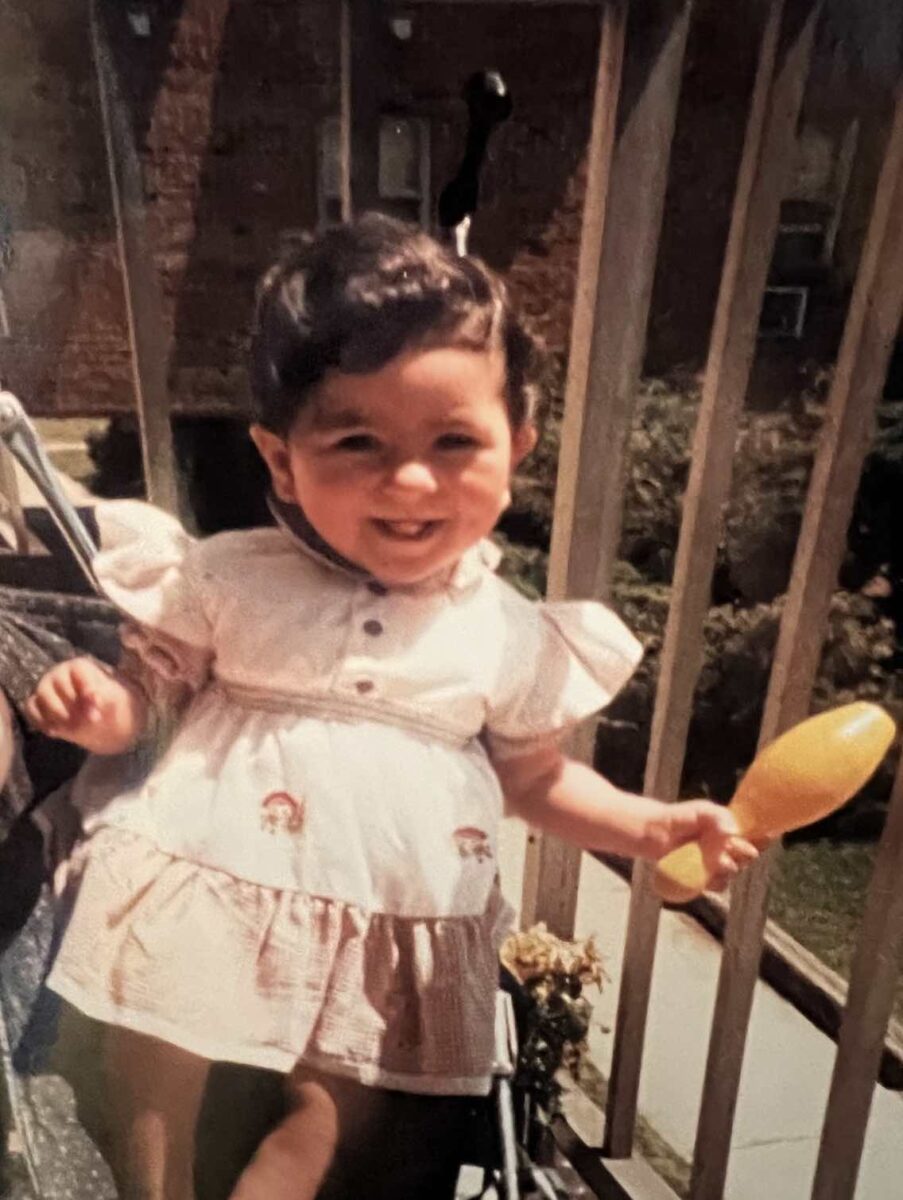
And no matter what kind of family you come from—I come from a really God-fearing, Christian home. My parents loved Jesus. My grandfather was a traveling evangelist in the Middle East. But we all have unhealthy beliefs that the enemy wants to plant in our lives that we have to begin to unpack. And even if you don’t come from this crazy addiction, divorce, trauma, abuse type of thing that we consider when you think about a difficult past, we still have unhealthy beliefs that we carry that the Lord wants to free us from.
The Bible says the truth will set you free [John 8:31-32], but you have to know the truth in order for it to set you free. And there’s nowhere else that we can get truth except sitting under the feet of Jesus. And that’s why I think getting in God’s Word is such an important part of the healing journey.
Jesus Listens, April 29th:
Glorious Jesus,
The ocean represents You—endlessly glorious and continually present with me. I want to put down all the pebbles so I can experience Your loving Presence. As I wait with You, I can almost hear You whispering: “Choose Me, beloved. Choose to see Me—to find Me—in your moments.”
I long for the day when seeking You continually will be a habit—a delightful habit that keeps me close to You on the path of Life.
In Your exquisite Name,
Amen
I’m just so grateful for the Lord’s role in helping me form healthy habits and moving in His direction.
Narrator: To learn more about Debra, please visit www.debrafileta.com, and be sure to check out her new book, Reset: Powerful Habits to Own Your Thoughts, Understand Your Feelings, and Change Your Life, at your favorite retailer.
If you’d like to hear more stories about walking on a journey with God, check out our interview with Kristin Smedley.
Next week: Akbar Gbajabiamila

Next time on the Jesus Calling Podcast, we’ll hear from host of The Talk CBS and American Ninja Warrior Akbar Gbajabiamila, who shares about how he chooses God daily.
Akbar Gbajabiamila: The way I choose God daily is really just by having a conversation. And I think the most basic form is being able to pray. I was taught at a very young age from my mother and father that before you do anything, you make sure you pray, before your feet hit the ground. I got the understanding that you start your day with praying. And that’s how I connect to God.


